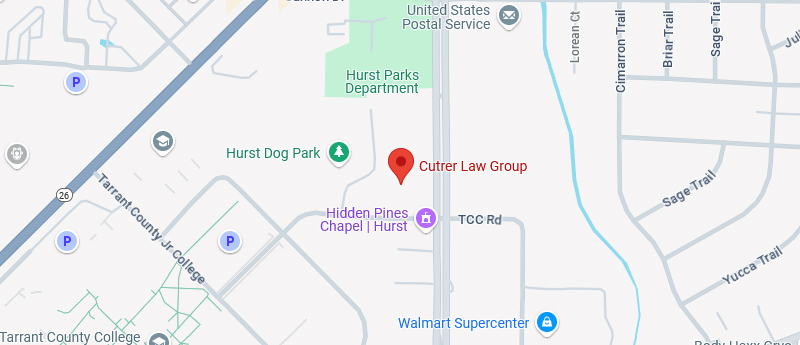What are the Legal Grounds for Custody Modification?
The Texas Family Code allows child custody agreements to be modified only when it is in the best interest of the child and when:
- There has been a substantial change in circumstances, or
- The child is at least 12 years of age and has expressed a desire for the requested change
The parent requesting the change must prove that the new circumstances warrant a modification.
Additionally, the modification must be requested from the court that granted the divorce unless the child has moved. In this instance, the case may be transferred to the court in the child’s new county of residence.
If the child is under 12 years of age or does not want to change the existing agreement, then the order will not be modified unless the change in circumstance is proven to be material and substantial.
As stated, the court will refuse a modification if the change does not reflect the best interest of the child. To determine if this standard is met, the court may consider the child’s needs, wishes, and relationship with each parent.
What Are Examples of Reasons an Agreement May Be Modified?
Many possible reasons warrant a change to an existing agreement. Such examples include:
- Change in living situation: A parent’s living situation may significantly change since the agreement was created, and the change negatively affects the child. This may include a shift in housing quality or homelessness due to foreclosure or eviction.
- Changes to employment, income, or work schedule: Significant changes to either parent’s employment may indicate a reason for modifying an existing agreement. Changes may include job loss, pay cuts, or an altered work schedule that does not accommodate the child’s needs or best interests.
- Relocation: Established child custody agreements operate under the assumption that the parents are located within the same geographic area and may prohibit the custodial parent from moving outside of the state. A court will likely modify an agreement to accommodate a move outside of the immediate area.
- Changes to family structure: Changes within either parent’s family, such as divorce, remarriage, or the birth of a child, may result in a decision to modify an agreement. If a parent remarries, an agreement may even be modified to reflect the newly married spouse’s involvement in caring for the child.
- Death of a family member: A family death may result in significant changes in a child custody agreement, such as when one parent passes. The death of other close family members, such as a grandparent, aunt, uncle, or sibling, may also require a modification if that family member provided frequent care of the child.
- Changes to the child’s needs: Significant changes in the child’s needs, such as receiving a diagnosis for a complex medical condition, may also result in modification to the order. Potential modifications may include changes towards the custodial and non-custodial parent or specifying which parent is responsible for different responsibilities in relation to the child’s medical needs.
- Preference of the child: Children over the age of 12 can state their preference for which parent has primary custody based on factors like the child’s relationship with each parent. As long as the child’s preference aligns with their best interest, this modification will be granted.
- Violation of the existing agreement: When either parent violates the terms of a custody order, a judge may choose to modify the agreement to prevent further violations or to provide additional protections for the child. This includes finding the offending parent in contempt of court for further violations. Violations include denying parenting time to the other parent and refusing to adhere to the agreement.
- Safety concerns: A judge will always have the primary concern of the safety and best interest of the child. When a legitimate safety concern arises, such as evidence of abuse or neglect, a judge will choose to modify an order to protect the child or to remove the child from the home without notice to the other parent.
- Unfit parenting: Substance abuse, severe mental health decline, or criminal activity are all considered evidence of a parent’s lack of adequate care for their child.
- Custody relinquishment: In rare cases, a parent may decide to surrender custody of their child. This may occur for several reasons, including an inability to appropriately care for the child or a lack of interest in being involved in the child’s life. When a modification is requested on this basis, a judge may modify the order to grant sole or full custody to the other parent.
What is the Legal Process of Requesting a Modification?
The process begins with filing an application of modification with the court that drafted the initial agreement. The petition should clearly dictate the changes sought and the reasons for the changes. Include all pertinent documentation, such as correspondence with the other parent, medical records, affidavits from witnesses, letters from employers, other other documentation that illustrates the need for change.
After the petition has been filed, a hearing is usually scheduled, and mediation may be suggested to avoid a trial.
This process may take several months to complete. However, if a judge agrees to the change, the increase or decrease in child support will be retroactive to the date of service.
When the modification is mutually agreed upon between both parents, the process will be quicker.
Do I Need an Attorney?
Any matter relating to your child should be handled by experienced allies who can work with you to achieve the best interests of both you and your child. Call Cutrer Law Group today at 817-854-1651 or fill out a contact form to schedule a free consultation.





 1845 Precinct Line Road
1845 Precinct Line Road info@akcfamilylaw.com
info@akcfamilylaw.com 817-854-1651
817-854-1651



